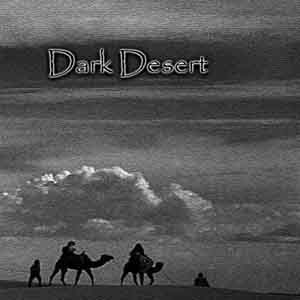| Dark Desert |
(2003) |
5:53 |
electronic |
|
|
|
This composition is an electronic realization of the orchestral work bearing the same title. Like many compositions this one follows a narrative. It is about a traveler, who from mishap finds himself wandering for many days in the desert. At first he would hide form the sun in the day, but from lack of food and water he must continue forward regardless. In the night he follows the stars across the dark desert. The traveler recalls his life of events and narratives playing through his head. He curses the people and things, which bring him anguish and screams for mercy from his suffering in madness. Until the dawn interrupts and rises on the final day of his life where he will never see it set again.
|
| thirst |
(2001) |
4:24 |
electronic |
|
|
|
|
Needs are a peculiar. Mnay people think of their wants are needs. I need money, I need happiness, I need food. When you start to boil things down the only thing any one needs are the primary things for survival and then death. You don't even need to live and can choose to die. Things start to turn into wants and desire. This is a topic only mentioned touched upon in this album. Thirst is a desire for water. This wet want holds more meaning than the simple need for damp sustenance. I am the author of the text
|
|
| Sands |
(2001) |
8:17 |
electronic |
|
|
|
Most deserts are rocky barren terrain that can hardly support life, but when they contain sweeping dunes of sand that cover the landscape the view is beautiful.
|
| Starfields |
(2002) |
5:31 |
electronic |
|
|
|
All my life I thought of the stars in conjunction with the sea. As an American we have a very strong sense that the immigrants that first came here came by sea with the stars to guide them. And in those star fields painted pictures of Greek heroes and myths. Later in life I came to find out that the desert dwellers had also relied on the stars to guide them across the vast sea of sand and their stories ran deep from the travels they had been making before a boat could float on the sea.
|
| Distance |
(2002) |
3:31 |
electronic |
|
|
|
In the desert are vast distances of space reaching out to the ends of the earth seen only at the impossible horizon.
|
| mercury retrograde |
(2001) |
3:21 |
electronic |
|
|
| A funny little planet, and a funny little Roman god, this planet "the messenger" is closest to the sun and because of our orbits twists an turns in the heavens wandering. Its surface scorched, Mercury, is a wasteland melted by the extreme heat and near proximity to the sun.
|
| Hourglass |
(2003) |
14:59 |
electronic |
|
|
|
Also a nautical instrument, I was fascinated with the dichotomy that an hourglass, or sandglass was used to monitor the speed of ships and the watches held by seaman. I had always imagined the falling grains representing the time passing for some helpless Persian princess in a dictator's grasp.
|
| - base |
|
6:10 |
electronic |
|
|
|
Another aspect I found fascinating about an hourglass was its relation to form. Many people describe forms of women in the shape of an hourglass and well as many other physical forms, which most definitely has its place in this composition, however I was thinking more of how it relates to form when composing the music itself. In one way the hourglass represents an ABA form. It travels from one vestibule to the other through a transitory passage. Its only stop as in a rondo form is the fact that even though the piece returns to its begining, it ends. The thing I like most about the hourglass is that it dares you to turn it over and play the sands of time again. Are you tempted to do the same with this piece?
|
| - traverse |
|
3:15 |
electronic |
|
|
|
The neck of the hourglass, the bridge, the traverse is an interesting area. In some ways it is moving and at the same time it also looks like it is at a constant. Always flowing in a solid stream. The only time that it becomes the most varied is either when it is clogged, or when sands beging to flow or cease.
|
| - land |
|
5:39 |
electronic |
|
|
|
Land, an expanisive word for an expansive concept. I wanted to have the listener envision all the meanings of this word at once in their mind. One of the pervasive themes in this album is sand and water. In one meaning the sands of the hourglass are landing. They are also pieces of land. Pieces of land which are in vast desert where people seek out water. Just as when they are surrounded by the sea for seemingly an eternity and they notice the aboration in the distance and scream, "Land!"
|



